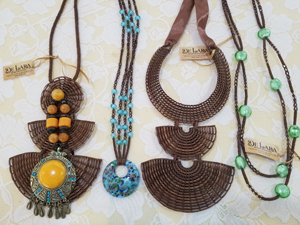 One of the best sources of raw materials for handicraft production is forest vines. Although these are abundant in Philippine forests, the supply may not meet demand, especially since the country is the second largest world producer of handicrafts.
One of the best sources of raw materials for handicraft production is forest vines. Although these are abundant in Philippine forests, the supply may not meet demand, especially since the country is the second largest world producer of handicrafts.
Natural regeneration is one of the ways on how to produce forest vines in the country. However, relying on this may not be enough to meet industry demand.
A project funded by the Philippine Council for Agriculture, Aquatic and Natural Resources Research and Development of the Department of Science and Technology (DOST-PCAARRD) titled, “Biological Studies of Economically Important Forest Vines in Camarines Sur and Albay Provinces,” aimed to address the sustainable supply of forest vines.
Specifically, the project aims to establish nurseries and plantation of forest vines as well as provide information on the phenology, ecology, and factors affecting the natural regeneration of forest vines to eventually identify appropriate propagation techniques. The project is also expect to come up with volume estimate of selected economically important forest vines in Camarines Sur and Albay province.
Eventually, all the information generated by the project will be inputted in the database of forest vines in the Philippines.
The project is being implemented by the Forest Products Research and Development Institute of the Department of Science and Technology (DOST-FPRDI), Department of Environment and Natural Resources (DENR), Bicol University College of Agriculture and Forestry (BUCAF), and Philippine Science High School – Goa Campus.
